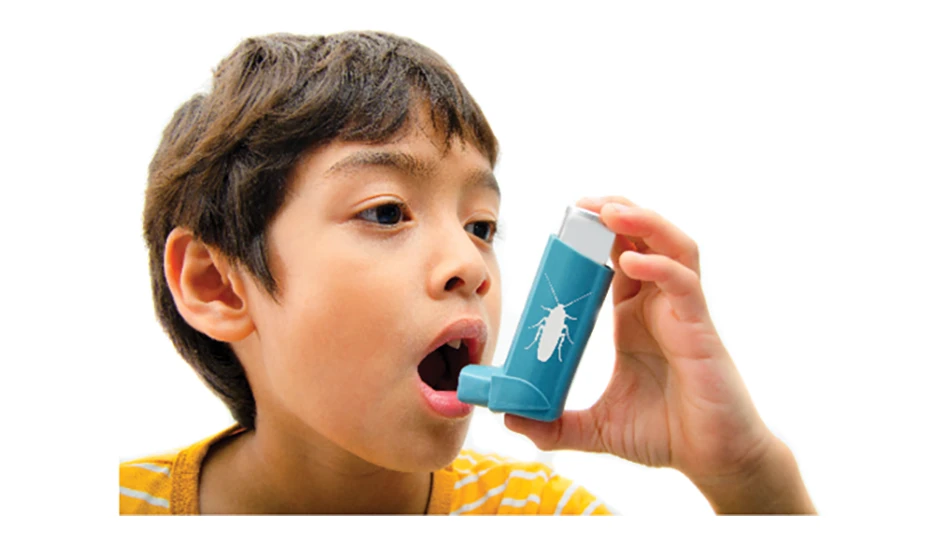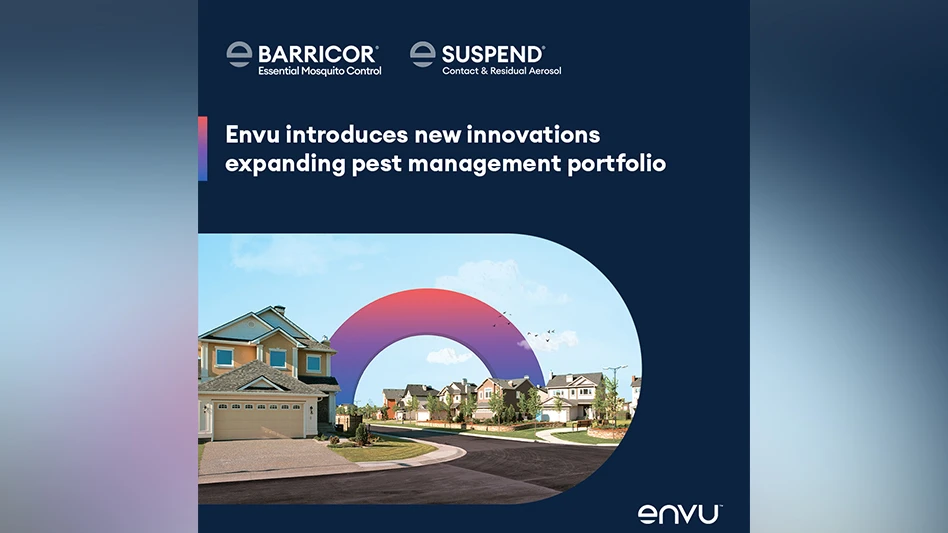
You’ve done everything right. You bought the best vehicle, wrapped it with your new logo, hired and trained the best technicians, bought the best equipment and chemicals, and hired skilled salespeople to find great customers. But then, when the technician gets to the customer’s location, nothing. The equipment fails. This is frustrating, embarrassing and expensive and it has happened to all of us.
It’s impossible to prevent all equipment issues but there are actions you can take to significantly reduce the likelihood of problems. Here is a list of key considerations for taking care of your pest control equipment. (Note: We are excluding vehicle maintenance from this list.)
CLEAN IT OUT. Any piece of pest control (or termite control) equipment that is used to apply a product, regardless of form (liquid, dust, granule, etc.) or application methodology (spray, dust, mist, fog, etc.), needs to be cleaned out regularly.
Dirty or clogged equipment is one of the most common problems we see in our equipment repair shop. We are continually surprised by the number of customers who pay us to clean out their equipment. Keeping equipment clean is the responsibility of the technician using that equipment.
In addition to causing downtime, chemical build-up in application equipment can cause damage to the equipment and can affect application effectiveness. An example of this latter situation is chemical build-up on the bottom of a spray tank. Chemical built-up inside a tank is not protecting the customer and the customer is not getting the value he or she paid for.
It is particularly important to make sure the filter is clean on your hand, backpack and power sprayers. Clogged filters are without question the leading cause of equipment problems. This is surprising because it is just about the easiest thing to check and correct.

RELEASE THE PRESSURE. Lots of pest control equipment uses pressure to apply product (sprayers, dusters, misters, foggers, etc.). Another great way to reduce spray equipment problems is to release the pressure. Release the pressure on your (power or manual) sprayer after each stop to prevent problems. Release the pressure by squeezing the spray gun handle to let the pressure drop in the line. The power sprayer must be turned off and the manual sprayer should not be pumped up. If spraying extra chemical on the ground is a problem, open the lid of the sprayer tank and spray the product back into the tank.
Releasing the pressure on the sprayer extends the life of soft parts like hoses, o-rings, gaskets, etc. We used to suggest releasing the pressure at the end of the day, but technicians forget and sprayers end up stored under pressure all night. Remember, summer temperatures on the truck are higher than ambient, so the pressure in your system will increase if you don’t release the pressure.
Releasing the pressure also reduces the chance of freeze damage should a deep freeze occur. If the sprayer is stored under pressure and the temperature drops, there is nowhere for the water to expand. The weakest link in the system will break when the water freezes.
Train technicians to release pressure off all power and manual compressed air sprayers at the end of each stop to extend the life of your equipment and reduce breakdowns and downtime.
SECURE THAT LOAD. We see three risks from unsecured equipment in vehicles:
3. Loose equipment flies out of the truck in a crash or other emergency. This is really scary and could result in an expensive lawsuit.

Here are a couple of key points regarding your equipment and driving. First, just because equipment is in the truck, don’t assume it is secure. Second, just because equipment is secure under normal driving conditions, don’t assume it will be secure in emergency conditions. And finally, be sure your staff checks their equipment/load before driving off.
An unfortunate example of a driver not ensuring that equipment was stored properly occurred recently in Arizona. The Arizona Department of Transportation reported that a wheelbarrow caused a deadly crash on the 101 Freeway in Glendale. Witnesses saw the wheelbarrow fall off a white work truck; ADOT is seeking the public’s help in finding the wheelbarrow owner.
PREVENT FREEZE DAMAGE. Surprise! It gets cold in the winter and stuff freezes! It happens every year. Every year our shop has a run on pump bodies, spray wands and guns, filters…all the stuff that breaks when water freezes in a sprayer.
This was the subject of a previous PCT article in October 2016: https://www.pct online.com/article/wild-winter/.
Here are key points from that article:
- If possible, do not expose equipment to freezing temperatures. Move it inside and keep it warm.
- Drain water from equipment if possible. Remember: Never store the system under pressure. Equipment that is left under pressure in freezing temperatures is much more likely to burst or experience other damage.
- Remove the high-risk components: pumps, filters, spray wands and guns.
- If you can’t do any of the above, protect equipment with insulation or blankets, heated blankets, heat cables, electric lights (not fluorescent).
- Put some anti-freeze in the tank and run the system just long enough to get the anti-freeze into the pump and other key areas.
- Never start or run frozen equipment. Let it thaw out before starting.
TECHNICIAN TRAINING. Most companies do a good job training technicians on equipment use on Day 1. But just because you trained Tommy Tech on Day 1, doesn’t mean he is still doing what you want him to do. People forget. They get rushed. They take shortcuts. They copy other technicians’ bad habits.
Shortcuts often reduce equipment life and cost you money. Perform periodic retraining on pest control equipment.
Technicians will live with problems. Many of the equipment problems we see in our repair shop are significantly worse than they need to be. In too many instances, service technicians have ignored problems in the hope that they will go away. Remember, “hope” is not a strategy.
Equipment problems do not get better and they do not go away. Much like the slow drip of your kitchen faucet, spray equipment problems ALWAYS get worse. Small problems inevitably become big problems. Big problems cost more and take longer to fix.
Encourage technicians to report problems. When technicians report a problem, don’t rip their heads off. It will discourage them (and others) from reporting problems in the future.
KEEP A BACKUP. As pest professionals, we rely heavily on our equipment, yet in many cases we have no backup. If you have a piece of equipment that is critical to your business then it is vital that you have a backup.
It doesn’t matter what the equipment is, if you can’t do your job without it. Keep a backup.
We see companies of all sizes, from owner/operator to huge nationals surprised when a key piece of equipment fails.
What happens when we don’t have the equipment we need to complete our jobs?
- Missed and cancelled appointments.
- Unhappy customers.
- Lost revenue.
- Downtime waiting for equipment.
- Employee downtime running around town trying to find a solution.
- Overtime expenses.
- Higher repair expenses.
What should companies do about this problem? Here are three actions to take. (Remember, a little time spent identifying what your critical equipment is and developing backup plans will save time, money and stress during your busy pest control season.)
- ID critical equipment. Review equipment by vehicle, by service and by technician to identify the most important tools.
- Develop a backup plan for each critical item. For some items it may be easiest to buy a replacement. For more expensive items, you may have to get creative. Look through that pile of used equipment in the corner and see if you can create something valuable out of it. Replace a hand sprayer a few months earlier than required and reserve the used one as a spare. Keeping a trailer in reserve can be cheaper than keeping an extra vehicle in the fleet.
- Review your plan. Review your backup plan annually to ensure it is still applicable. Test backup equipment periodically to ensure it is functioning properly. Don’t assume equipment sitting in the corner for years is still going to work.
PREVENTIVE MAINTENANCE. Your pest control equipment requires maintenance. It doesn’t matter how much you paid or how well you take care of it. Hard use, harsh chemicals and long hours all take their toll.

The question is when do you do the maintenance? There are only two possible answers to this question. You can decide when to do the maintenance or you can let the equipment decide.
If you decide, then you can perform maintenance when it is convenient for you and your business, i.e., slow periods, vacations, etc.
If you let the equipment decide, then here is what happens. Your equipment will fail when it is least convenient for you. It will fail when you are busy. It will fail when your clients need you. It will fail when the repair shop is very busy, so the repairs will take longer.
Take control. Plan your maintenance.
SUMMARY. Many equipment problems are preventable. A little planning and some advance work will reduce downtime and expenses and result in happier customers and employees.
WANT MORE?
Enter your email to receive our newsletters.

Explore the November 2021 Issue
Check out more from this issue and find your next story to read.
Latest from Pest Control Technology
- How to Get Rid of Odorous House Ants
- Massey Services Promotes Herndon to Director of Sales for Multi-Family Division
- NPMA Announces First Recipients of NPMA PRO Certified Credential
- Pestmaster of the Hudson Valley Acquires Catskill Animal Damage Control
- Photo Slideshow: Ant Identification Tips
- Video: Top 10 PCT Photo Contest Finalists
- UF/IFAS Study Reveals Boats as Perfect Vessels for Global Termite Spread
- Pest Control Consultants (Iowa) Earns Pinnacle Performance Award





